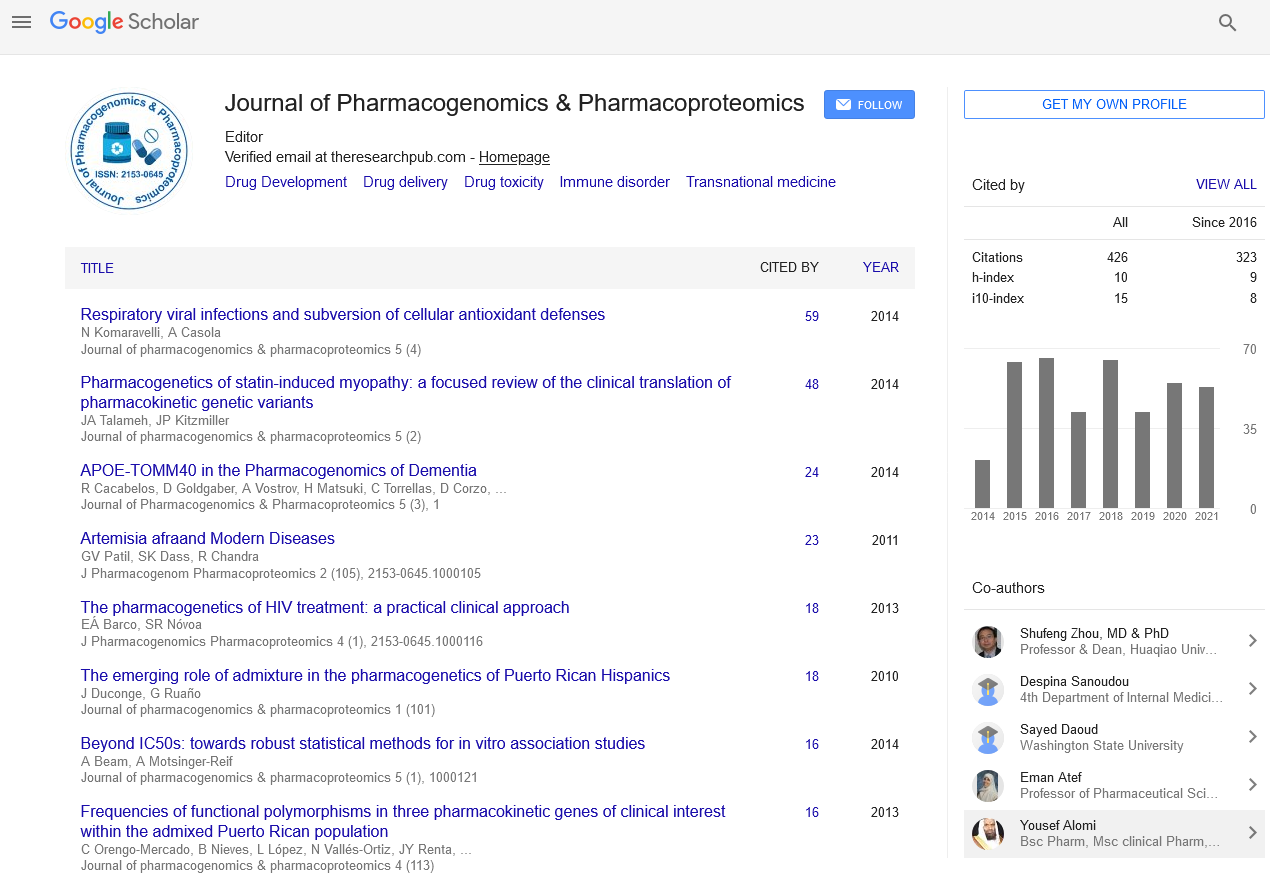Indexed In
- Open J Gate
- Genamics JournalSeek
- Academic Keys
- JournalTOCs
- ResearchBible
- Electronic Journals Library
- RefSeek
- Hamdard University
- EBSCO A-Z
- OCLC- WorldCat
- Proquest Summons
- SWB online catalog
- Virtual Library of Biology (vifabio)
- Publons
- MIAR
- Euro Pub
- Google Scholar
Useful Links
Share This Page
Journal Flyer

Open Access Journals
- Agri and Aquaculture
- Biochemistry
- Bioinformatics & Systems Biology
- Business & Management
- Chemistry
- Clinical Sciences
- Engineering
- Food & Nutrition
- General Science
- Genetics & Molecular Biology
- Immunology & Microbiology
- Medical Sciences
- Neuroscience & Psychology
- Nursing & Health Care
- Pharmaceutical Sciences
Abstract
Pharmacogenomics of Oral P2Y12 Receptor Blockers
Talha AR Meeran, Nachiket Apte, Eli I Lev, Martin G Gesheff, Udaya S Tantry and Paul A Gurbel
Dual antiplatelet therapy of aspirin and a P2Y12 receptor antagonist is the cornerstone of therapy for patients. Thienopyridines (ticlopidine, clopidogrel and prasugrel) are prodrugs that need cytochrome–mediated conversion to active metabolites to block P2Y12 receptors and subsequent ADP-induced platelet aggregation. Clopidogrel response variability has been attributed to a variable generation of its active metabolite which is in turn influenced by single nucleotide polymorphisms of genes associated with intestinal absorption protein, ABCB1 and hepatic cytochrome isoenzymes particularly CYP2C19. Moreover, presence of loss-of-function allele of CYP2C19 gene has been associated with poor active metabolite generation, poor antiplatelet response and increased risk for cardiovascular event occurrences particularly stent thrombosis in patients treated with clopidogrel. Recent studies suggest that genetic variations in CYP2C19 and CYP2B6 may affect response to the drug; however its clinical significance is unknown at this time. Although, ticagrelor (a cyclopentyl-triazolo-pyrimidine), is a prodrug, it is metabolized by CYP3A4 and its active metabolite is as potent as parent drug. To date there are no reports of significant influence of genotype variations on ticagrelor metabolism, its antiplatelet response or clinical outcome. The optimal strategy to overcome the influence of LoF carriage in patients treated with clopidogrel is probably to switch therapy to either prasugrel or ticagrelor, although large-scale studies assessing this approach have not been performed.


